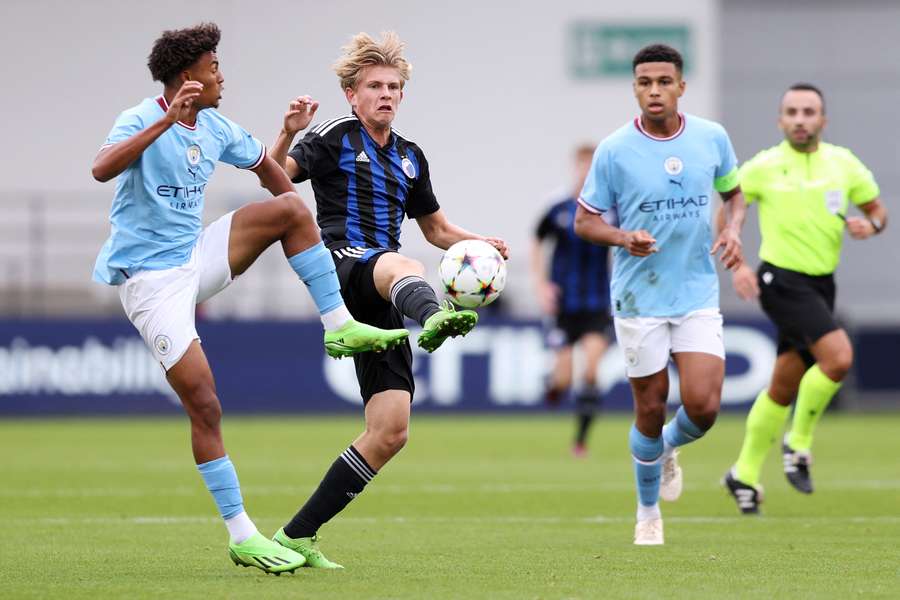"A joint football organisation is therefore being established in Rosengård to develop the club, and the partnership may be expanded to include more academy teams", says FC Copenhagen on their website. "Developing young players" is the keyword here, as FC Copenhagen, in its efforts to remain the allegedly strongest club in Scandinavia, has needed a pipeline to further exploit the extensive volume of talent within the FC Copenhagen Academy.
"FC Copenhagen wants to give talents more playing time at a higher level than they currently have the opportunity to, in relation to the substantial volume of talents. One thing is that they are able to recruit talent, another thing is that they are able to develop them."
"You can compare it to Chelsea, who were great at identifying Kevin de Bruyne and Mohamed Salah but were unable to develop them all the way to fit them into their first team, matched with the right timing and context", explains Ph.D and sports business expert, Kenneth Cortsen, from UCN to Flashscore.
"FC Copenhagen have great talents who may not be ready for the first team right away, but they can make a big difference elsewhere, such as Thomas Jorgensen is now doing at Viborg", says Cortsen, who also argues that a potential partnership with FC Rosengård can help the reigning Danish champions exploit their financial potential to a greater degree.
"The Copenhagen Academy excels in developing great talent, but it's only the very best who get a chance in the first team. That signifies a financial challenge for them because the volume of surplus talent is so great that it constitutes a significant asset which FC Copenhagen, futurewise, needs to exploit to a greater degree", says Cortsen.
Cortsen underlines that the very ambitious initiatives and the investments of financial tycoon Anders Holch Povlsen at FC Midtjylland have also forced FC Copenhagen into launching a potential partnership with FC Rosengård.
"This is a counterbalance to FC Midtjyllands, 'Farmer clubs or pipelines' in Mafra and Africa. If you measure it by the number of championships, FC Copenhagen have done quite well and didn't anticipate this before the pressure became greater from Jutland."
"At the same time, you have seen that Holch Poulsen hasn't joined FC Midtjylland just for show, and therefore the timing for a potential partnership with Rosengård makes sense, also if we take the enormous commercial potential of the Copenhagen area in general terms into consideration", says Cortsen.
In Sweden, the 50+1 rule requires professional football clubs to be member-owned, including Malmö. FC Copenhagen are the direct opposite and is regarded in Sweden as the epitome of everything that is wrong about modern football as a club that relies heavily on private investment after being established in the 1990s as a merger between B1903 and KB, two clubs with an extensive history in Danish football.
On 2. December members of FC Rosengård, which is located in Malmö, will vote on whether the Parken Sport & Entertainment group will be allowed to invest in the club, but despite the obvious differences in ownership structure, Cortsen doesn't anticipate any problem for the Danish outfit.

"There is always a risk of fan resistance when there is a change of ownership structures across cultures and national borders, but I am sure that the two clubs have discussed this already."
"From a geographical and financial perspective, this is a move that makes sense. It is likely that Rosengård has an eye on who is leading the race in Scandinavia in terms of transfer fees, and thus they may see a chance for greater financial gain through a collaboration with FCK", says Cortsen.
There are just 38km from Malmo to Copenhagen’s Parken Stadium, divided by the Oresund Bridge, and the train or car journey between the two cities can be made in just half an hour, which could also benefit the potential partnership between the two clubs.
"The geographical proximity also plays a role in terms of logistics. Integration of players is easier in terms of culture and mentality, when the Copenhagen youngsters don't have to relocate, and I think it's a really attractive solution for the talents", ends Kenneth Cortsen.

